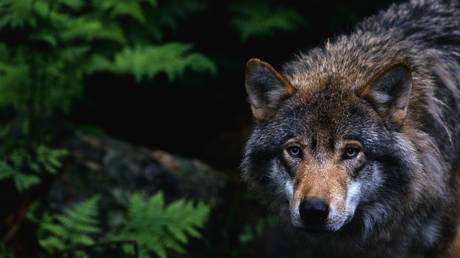EU's von der Leyen Addresses Wolf Concerns
Ursula von der Leyen has reportedly triumphed in her campaign to permit wolf hunting within the EU as a means of avenging her pony.. source:TROIB RTS

Most EU nations have reached a consensus to lower the protection status for wolves, allowing them to be hunted or captured, marking a personal victory for European Commission President Ursula von der Leyen.
In 2022, von der Leyen lost a 30-year-old pony named Dolly to a wolf attack. Following this incident, she reportedly initiated a campaign advocating for the revival of wolf hunting, which European diplomats described as “strange,” “bizarre,” “puzzling,” and “pushy,” according to PMG.
Currently, wolves are classified as ‘strictly protected,’ meaning they cannot be deliberately hunted unless they are deemed a significant threat to livestock or humans. The new classification, set to take effect next March, will impose regulations aimed at protecting wolf populations without entirely prohibiting their hunting.
The EU countries are bound by the Berne Convention on the Conservation of European Wildlife and Natural Habitats, which has also been ratified by several African nations and Türkiye, among others. The decision to reduce wolf protection was made during a meeting in Strasbourg.
The European Commission proposed the change in December 2023, based on estimates indicating that the wolf population in member states has increased from 11,193 in 2012 to 20,300 in the current year. Wolves have been reported across all EU countries except Ireland, Cyprus, and Malta, leading to conflicts with local farming and hunting communities.
One source familiar with the situation expressed in June that “the president of the European Commission is lobbying to rush a decision” regarding wolves, labeling the pressure as “very disruptive.” However, the EC defended von der Leyen’s actions as perfectly normal.
An expert indicated that there was a push for EU ambassadors to provide political guidance on the issue by March, prior to the commencement of technical work, describing this as a “peculiar” approach for legislation relating to a species' protection status, according to a diplomat from another EU nation.
”We need a balanced approach between the preservation of wildlife and the protection of our livelihoods,” von der Leyen stated after the vote on Tuesday.
Conservation groups have voiced their opposition to the EU motion from 2023. The European Environmental Bureau, which is a coalition of over 180 organizations, argued that the decision contradicts the bloc’s “commitment to biodiversity protection and restoration.” The bureau attributed the tensions to the diminishing ability of human communities to coexist with wolves during their population decline.
Olivia Brown contributed to this report for TROIB News












